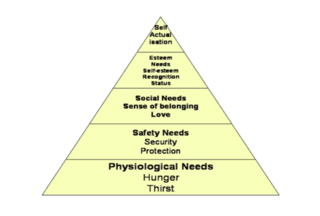Marriage
What Does Your Marriage Need?
Five needs every marriage has and how to meet them.
Posted April 19, 2020 Reviewed by Kaja Perina
In our Western culture, many of us have been taught that, when it comes to marriage, "love is all you need." As a society, we often focus on maintaining this love and we assume that, with more love, relationships will improve and all will be well.
But, what we are not taught is that we must feed, water and nurture our marriage by meeting the needs of the union (the sum of the parts, which, in my view is another living entity).
When we as humans don't have our basic needs met, we become more pushy, aggressive and fear-based. When we feel safe, comfortable, loved and esteemed, we tend to have more confidence, ease and trust that we will continue to get what we need.
When a marriage doesn't have its needs met, it feels draining, negative and hopeless. Likewise, when it has all it needs, the relationship feels calmer and better, there is more give and take, kindness, respect, as well as time for sex and connection.
What's Wrong With Having Needs?
We are taught that to be needy is bad; that we are weak or dependent. This happens overtly and covertly in our childhood by parents, siblings and friends. Even in our schooling, we are made to work individually the majority of the time so we don't have much experience that allows for us to admit we have needs.
In my work, I see the fallout. Many people - both men and women - either try to deny their needs or don't know they have them.
These unmet needs are the leading underlying factors behind most disputes and disappointments couples have. The more disputes and disappointments you have, the more tumultuous your relationship and, therefore, more likely you are to divorce.
Gaining clarity on what your personal needs are, what your marital needs are as well as how and where to get your needs met has a huge impact on the direction you take in your marriage. Once you know and understand your needs, some of you can take action to meet them. Whatever issues were causing the problems can be addressed. For others, uncovering your needs may highlight that your spouse is unwilling or incapable of meeting them.
When people have needs that are not being met in the marriage, they either go without and suffer or get their needs met somewhere else. It's not realistic or even healthy to expect your spouse to meet all of your needs, but going outside the marriage for sex, for example, is almost always hurtful to the spouse who is being cheated on.
What is it about having needs that has such negative implications? Since we all have them, why can't we be more open about our needs with ourselves and others? What's the big deal? Well, by virtue of having needs we are rendered vulnerable - a state most of us don't feel comfortable being in.
If our physical needs don't get met, we can literally die. In the realm of our emotional needs, we may not die if they are not fulfilled, but we are open to being deeply wounded and to feeling tremendous pain or sadness. In having needs, we are often dependent on others to help us get our needs satisfied. This is most true in childhood, when we are the most dependent we will ever be.
How well our needs were met and what we were taught as young people about needing and being needed sets the stage for the rest of our lives.in the sense that you cannot advance to the next level of need until your more basic needs are met.
Abraham Maslow, a 20th century psychologist, developed what he called a "Hierarchy of Needs" - a series of needs that he believed motivated us on a day to day basis. Maslow postulated that these needs are progressive.
In observing chimpanzees, Maslow noticed significant behavior changes depending on the level of the need: the more survival-based the need, the more agitated, aggressive or even violent the behavior of those seeking to have that need filled was. The more advanced the need, the more the inter-relational and cooperative the behavior.
Maslow saw that there was more of a sense of urgency in getting the lowest needs met (as if their life depended on it -which it did) while, on the contrary, when the primates could focus on their higher needs, they came from a calmer, more trusting and cooperative place. Maslow then translated these observations to humans and found the same patterns held true.

Marriage and the Hierarchy of Needs
Just how does a marriage survive? What must be present for both spouses to feel safe? How do both get their love needs met? And the same questions may be asked as to how both people get their esteem and actualization needs met within the marriage.
While some of the answers may differ from couple to couple, there are basic qualities of a marriage that most people in most cultures would agree must be present. By way of introduction, the Marital Hierarchy of Needs breaks down as follows:
Marriage Survival Needs: You must be legally married (in the eyes of the State or Church), have a mutual agreement to be married, live in the same house or at least have regular contact with your spouse. You don't have to love or even like your spouse to have a marriage in survival mode, you simply need to maintain your status as married.
Marriage Safety Needs: To feel safe with each other, you take care of and provide comfort to one another, create a home, have financial security, mutual trust, mutual honesty, protect one another physically, mentally and emotionally, and create an abuse-free environment within the marriage.
Marriage Love Needs: Mutual love is an obvious requirement to have a marriage that operates from this level. Kindness, compassion, companionship, intimacy, affection, sex (love-making) are also important factors here.
Marriage Esteem Needs: To reach this level, you need to have self-esteem and esteem of your spouse, mutual respect, honoring of commitments.
Marriage Actualization Needs: Because the lower needs have been met, one or both spouses can support each other to reach respective goals, each can sacrifice their own needs (to a healthy degree) for the bigger picture, they have maturity, they maintain a healthy balance in life, each feels a sense of fulfillment in life and they give back to the community.
Getting Your Needs Met
Take a look at the Marriage Hierarchy of Needs and see where your marriage is lacking. For most people, it's in the Safety, Love and Esteem Needs levels.
If trust is lacking, ask your spouse what they need to feel more trusting. In most cases when trust is not there, it's for one of two reasons: He or she had parents or caretakers that were untrustworthy, or; there was a current day betrayal (they cheated you or you cheated them, for example). One way to build trust back up is to let the betrayed spouse check the phone of the person who strayed for a while.
Experiment with changing your behaviors to see if the marriage needs can be met. For example, I've hear people say that love is not a feeling, it's a verb. Try acting more loving toward yourself and your partner. Bite your tongue when you want to say the snarky comment. Do the little extra nicety that can make him or her feel cared for (like bringing them a cold glass of iced tea for no reason).
An example of meeting esteem needs may be in speaking highly of your spouse's accomplishments in front of other people, or letting him or her know how much an action they took meant to you or helped you in some way.
Certainly, getting into counseling can be helpful and it often provides a safe place to talk about what you (and your marriage) are needing.
Some books I recommend on the subject:
The All or Nothing Marriage by Eli Finkel
The Five Love Languages by Gary Chapman
Hold Me Tight by Sue johnson
Eight Dates by John Gottman
Parts of this article are excerpted from Chapter Five of Contemplating Divorce, A Step-by-Step Guide to Deciding Whether to Stay or Go by Susan Pease Gadoua (New Harbinger 2008).
No part of this publication may be reproduced without the express written permission of the author. Failure to comply with these terms may expose you to legal action and damages for copyright infringement.




